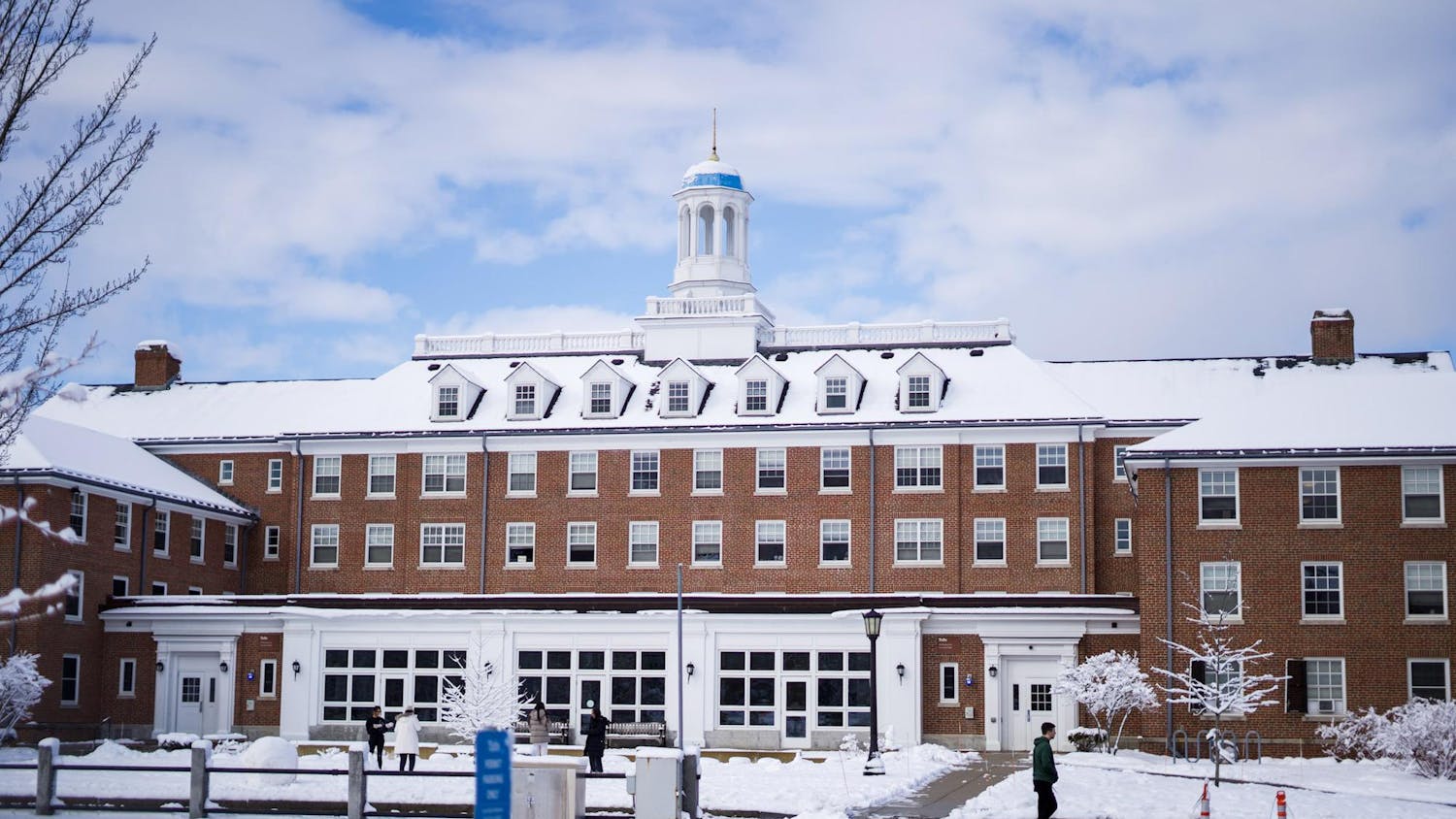The Tufts Division of Student Diversity and Inclusion recently announced its plans to form a new on-campus identity center for students who identify as Indigenous and Native American. The creation of the center was among the recommendations of the Compositional Diversity Workstream that took place this past February. The creation process will be led by Ellise LaMotte, who started her tenure as associate dean in the division of student diversity, inclusion, and success on Nov. 1.
Members of the Indigenous Students' Organization at Tufts have been an integral part of the work to establish the center behind the scenes. Although ISOT is not yet recognized as an official student organization through the TCU senate, it has existed on campus since fall 2019. Even before the announcement of the center, members of the ISOT worked with admissions to recruit new students by participating in the Voices of Tufts Diversity Experience.
ISOT member Tylee Tosia, a sophomore, was initially drawn to Tufts by the support she found during Voices.
“I knew that there probably wasn't going to be a center for me," Tosia said. "But the fact that ISOT did exist at Tufts, that was a ... big reason why I actually chose to come here."
Junior Hannah Norton was one of the students who helped form ISOT in 2019.
“When we do the program Voices — hosting Zoom meetings with incoming Indigenous students — one of our main points is [that] we're working towards the center," Norton said. "And having that hopefulness of working towards the center … has been used to bring in freshmen and bring in Native students,”
Norton and Tosia noted that despite being mentioned only once in the announcement of the center, ISOT was a major driving force behind calls for an Indigenous identity center.
“It was infuriating that ISOT only was named once in the whole announcement,” Tosia said. “Tufts has used a lot of Indigenous stories and Indigenous voices to promote us basically, and the fact that they hardly mentioned us in that article was very hurtful ... Every single member of ISOT has put in so much effort and so much time ... It didn't give us justice for what we all have done and everything we have sacrificed just to be here and to have our voices heard.”
During their work over the past year, Norton and other ISOT members had support from former Senior Assistant Director of Admissions Sean Ashburn (AG'20) and former graduate student Sidney Kabotie. As part of their graduate capstone projects, Ashburn and Kabotie interviewed ISOT students and organized their stories. Kabotie helped present student conclusions and concerns to the Tufts administration.
LaMotte is charged with managing the opening of the center, including hiring a director for the center. The director of the Indigenous People Center will have a joint role in admissions.
Norton said that they would like to see an effort to increase Indigenous representation among staff on campus.
“Having people that were working with the center with the students directly that were faculty and staff … has been something that we've brought up since [spring 2020],” Norton said.
Tosia sees the job opening as an opportunity to deepen connections with the local Indigenous community.
“We are on [Indigenous] land right now. And so it's important that they are aware of [this posting],” they said.
When interviewed by TuftsNow, LaMotte noted that she is looking forward to working with students who identify as Indigenous in order to develop a supportive space for them, although she was unable to comment further to the Daily about specific details at this time.
In response to the creation of the Indigenous People Center, junior Jaden Pena, TCU diversity cfficer, explained that the TCU Senateannouncedits intention to create an Indigenous community senator position.
“The process of creating a new community senator position is interesting. It requires 250 signatures on a petition," Pena said. "That petition needs to be started by a TCU student organization that is recognized."
ISOT, however, is not currently a recognized student organization by TCU Senate.
“ISOT being recognized as a club will be the first thing. I don't think [ISOT] should have an issue being recognized," Pena said. "That would be awesome if we get the senator position and the center.”
Pena recently introduced two abstracts for resolutions on behalf of identity-based centers. He sees the resolutions as an example of the importance of the role of community senator voices in the Senate.
“My resolutions came from meetings with senators of the [identity] centers and their directors,” he said.
The first abstract calls for more funding for identity centers, coming from funds from Tufts as an Anti-Racist Institution Initiative. The second abstract asks that funding be distributed among the community centers proportionate to student-body diversity. If passed, the resolutions will also apply to future community centers such as the Indigenous people center once it begins operating.
After their efforts to advocate for an identity center, Norton and Tosia are excited to have a community space available on campus.
“We take a lot of inspiration from the other identity centers at Tufts. We really want to use [the center] to create a community for Indigenous people, or even Indigenous allies, to come and relax,” Norton said. “If I were to go into Tufts now, I think I would be much happier, without having the pressure to be a freshman and establishing a Native voice on campus ... I'm very glad that we can provide it for the students now.”
While optimistic, Tosia also cautioned against celebrating too soon.
“Yes, we're getting a center, but ... there's so much more to be done. This is just the beginning,” she said. “There needs to be constant talks and constant work being done to make this a safe space for Indigenous-identifying and Native students.”






